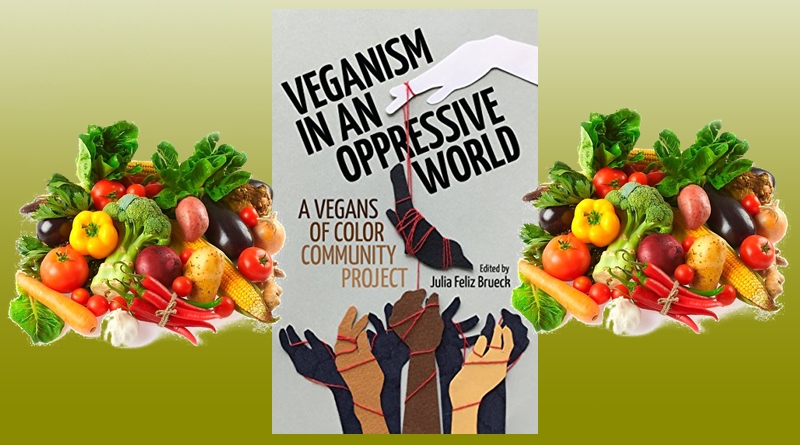Recommended Book: Veganism in an Oppressive World
One of my former students @norinagm who graduated in 2018, was kind enough to give me a book as a parting gift. She took my final year undergraduate module Media Inequality.
 Norina (pictured left), a wonderful student, applied critical understandings of race, whiteness and inequality learnt on my module to her passion and commitment to veganism. I couldn’t have asked for a more meaningful gift than this book.
Norina (pictured left), a wonderful student, applied critical understandings of race, whiteness and inequality learnt on my module to her passion and commitment to veganism. I couldn’t have asked for a more meaningful gift than this book.
I had actually started to investigate veganism in 2017 after watching the documentaries Hungry for Change, Food Choices and Cowspiracy (scroll down to the footer for trailers). These really opened my eyes not just to the cruelties inflicted on the animals we consume but the cost to the environment and unsustainability of meat farming.
While I haven’t fully committed to becoming vegan, I do have a more informed perspective on the issue and would describe myself as semi-vegetarian.
What’s great about Veganism in an Oppressive World is that it promotes an intersectional approach to veganism:
“Each marginalized community has its own specific struggles and means of survival in a world that [is] riddled with injustices against them by default. Thus, understanding the intersections that an individual may face, historical and cultural influences, and how that may prevent a community from openly embracing veganism is just one way that the mainstream vegan movement can begin to form a true understanding of anti-oppression and what it means to be aware of the work that needs to be done before expecting non-white communities to readily embrace the vegan message and lifestyle.” (p.13)

In addition to critiquing mainstream discourse on veganism, the book also offers useful strategies for promoting inclusivity within the vegan movement and supporting vegans of colour. One such example (p.18) reads:
“Recognize that your perception and experience of the world is completely different to that of a vegan of colour or vegan from any other marginalized community of which you are not part.”
After the introduction, the book presents a series of poetry and essays by vegans of colour that give voice to their experiences. I really value this text as an emancipatory project foregrounded in intersectionality and highly recommend it as essential reading for anyone interested in exploring critical perspectives on veganism.















